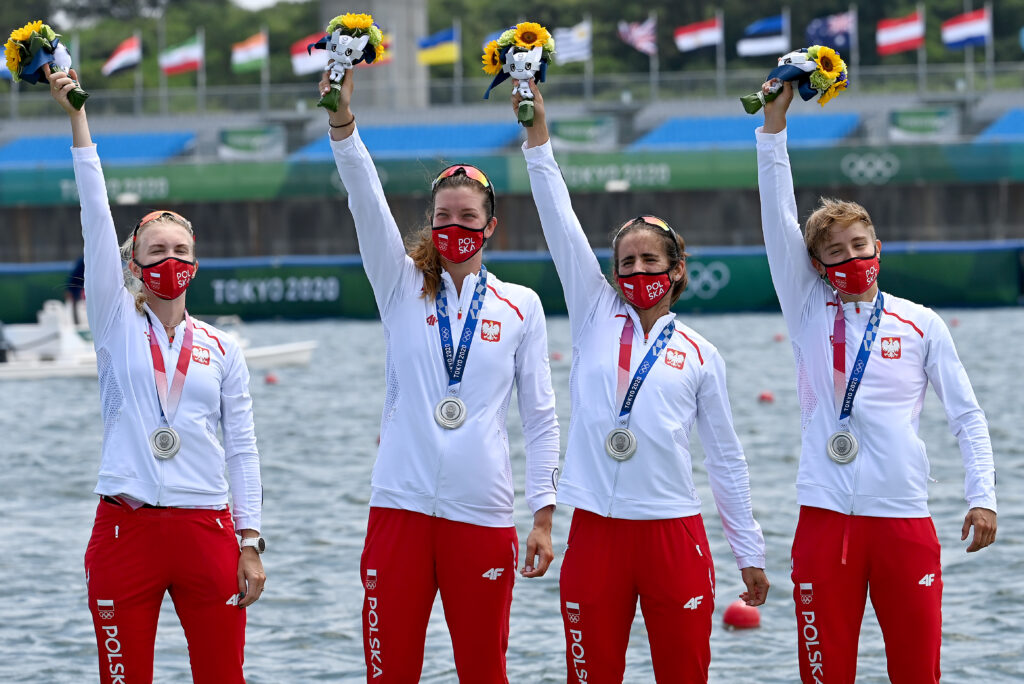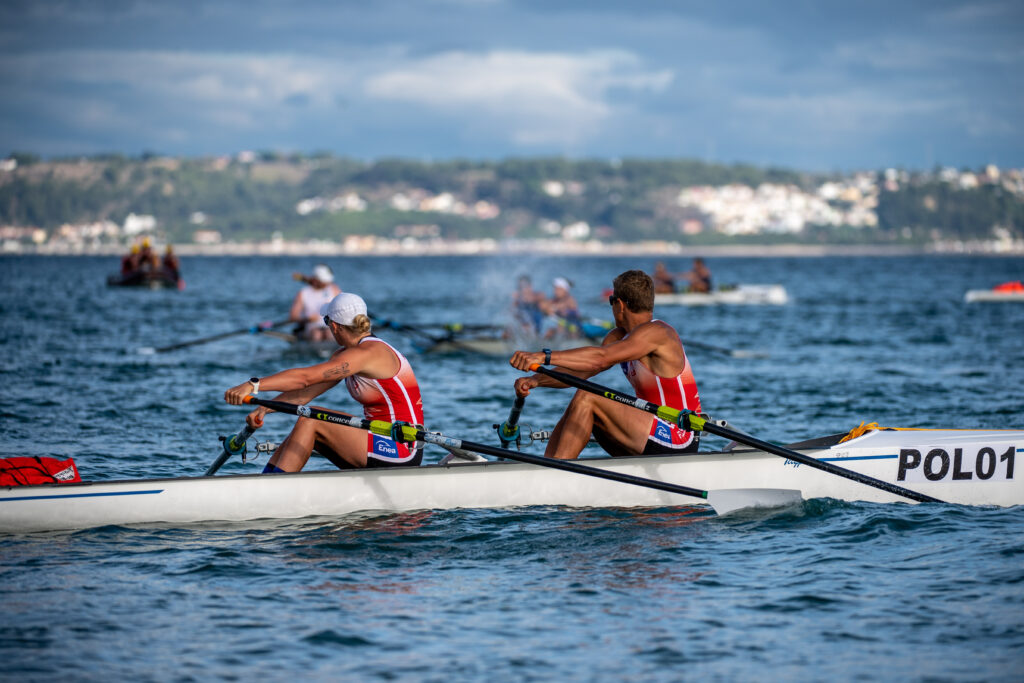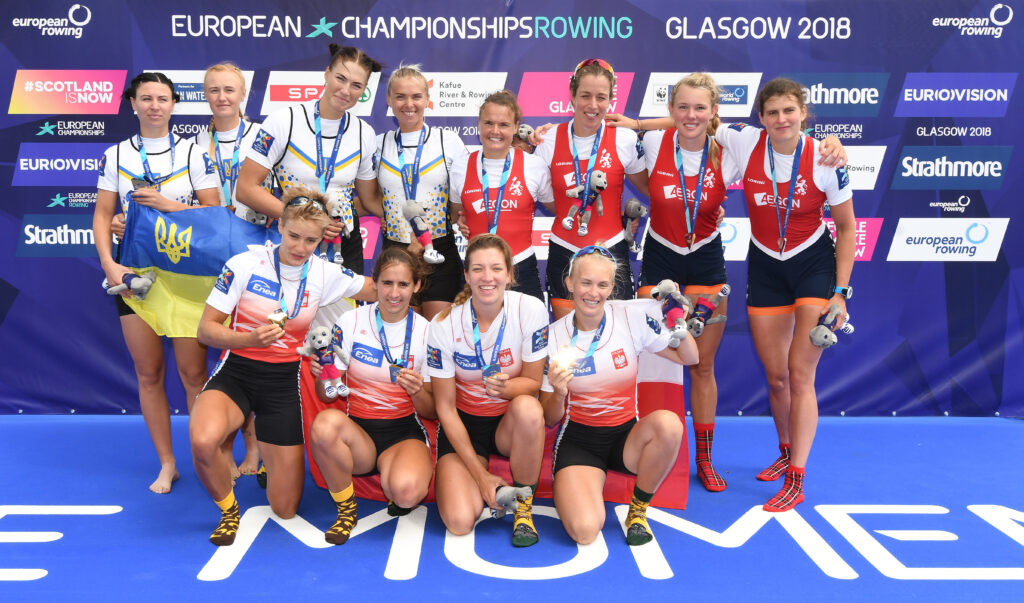
20 Apr 2022
April 2022 - Agnieszka Kobus-Zawojska
Going into the Tokyo 2020 Olympic Games, Agnieszka Kobus-Zawojska had one goal in mind: better her bronze medal from 5 years prior in Rio. With very few races in the year leading to the Games, as well as having contracted Covid-19 and feeling the long term effects, these Games were as much mental as they were physical for the Polish athlete, if not more.
World Rowing recently chatted with Agnieszka to hear more about her journey in rowing, and where she finds herself now – welcoming her Ukrainian friend Olena Buryak into her home.
How has been the start to your 2022 rowing season?
My preparation for the Tokyo Olympics was really hard. I trained every day, but I needed and I still need a break from the camps. Since 2010 I have spent about 300 days in training camps. That’s why I needed to recharge my batteries and enjoy the simple things in life. I have a plan to race at the Polish rowing championships and also do some competitions in Coastal rowing. I think, it is a great chance for me to relax mentally.

You had a great 2021 season – a silver medal in Tokyo. What was the lead-up to Tokyo during the pandemic like for you?
Firstly, when the pandemic started in Poland, I was really nervous and stressed, because four years of preparation could have been thrown away very quickly. I didn’t know if the Olympic Games would take place and it was difficult to find motivation. And then during lockdown, the president of the International Olympic Committee said that the Olympics will be postponed – meaning we would have one more year of preparation. At that moment I felt relieved. I also thought that if I couldn’t change the situation I was in, then I had to take it. It was hard to train without competitions, but I had one thought in my mind: “I want to improve my result from Rio and I want to live and feel that moment one more time, as it was the best moment of my sport’s career: standing on the Olympic podium”.
After a year only with one competition, the 2020 European Rowing Championships, with a bronze medal, I was sure that the most difficult was behind me, but it wasn’t. The Olympic year became the most complicated period in my rowing career. Before the first start of the 2021 season, I got Covid-19 – I couldn’t compete at all but I wanted to come back as quickly as possible. My mind was ready, but my body wasn’t. That’s why I had a lot of bad thoughts in my head. I was really stressed that I wouldn’t have enough time to prepare. Because of the stress, I had pain in my chest and suffered from depression, and I didn’t wanted to take part in the Olympic Games anymore. So, I had several meetings with a psychiatrist and psychologist. I was working on myself every day. Luckily, at the end, my husband came to a rowing camp to support me and that gave me extra motivation. Three months later in Tokyo, I really realised that it was a self-conquest. That is the main reason why this silver medal feels like gold to me.
How did you first get into rowing?
Rowing chose me, and I chose rowing. My parents were rowers, so on one hand it is a family tradition, and on the other, my PE teacher and rowing coach advised me to try something new after competing in athletics in primary school. My first start was in a single scull at the Polish champs in 2004. I finished third. It motivated me to continue and pursue other achievements in the sport.

You finished your 2021 season with a trip to Oeiras, Portugal, to compete in Coastal Rowing. Did you enjoy the experience? And what do you see as the future of coastal rowing?
At first, it was really nice and fun for me. Being in a team with my husband was an achievement. At home, we are usually agree with each other, but to be together in a boat is really a complicated task. My husband wanted to be a coach, an athlete and a boss – meaning big pressure on my shoulders. Then he relaxed and decided to be gentle -and we had a great time together. We learnt to be one team – and not only at home. We cooperated, we realised that we had to listen – not only ourselves but each other as well.
Coastal rowing was a challenge for me, because there were some huge waves in the ocean, more than 1,5 m. Firstly, I panicked a lot, but within 10 minutes I managed to calm down and started rowing. It was a personal achievement. For me it is totally different and really exciting, because you have to row, think and feel the ocean and its mood. It is a mix of rowing and sailing, and to some extent in endurance races, it is similar to “MMA”. I had an experience when the Spanish boat touched us and we fell into the water, I wanted to continue the race and I did it. I have one rule in my life, when I start something, I must finish it. I would like to compete one more time, because I like such type of competition. And I love trying new things.
You recently welcomed Olena Buryak and her family into your home – what has that been like?
I had just come back from the sport camp for receiving the title of the best athlete in Warsaw. I read the news that the war had started in Ukraine. I had a mix of emotions, because it should have been a really happy day for me (because of the title), but it wasn’t. I thought about Olena, as she is from Ukraine, and I know her. I considered it my duty to ask about her feelings, her safety. I didn’t think a lot about it, I just called her and asked to help. We have never talked much after our races against each other. Maybe sometimes we had chats for 3 or 4 minutes. But I have always respected her, and we always only had positive exchanges.
Olena had a really long trip to arrive in Warsaw from where she was in Ukraine. My husband and I prepared a flat for her and her family. We also organised food catering as we knew that they would be tired and without the energy to cook. When we first saw their faces when they arrived, they were exhausted, but felt safe as they had crossed the border. I guess the silver lining, though… I now have a friend in her.

When you aren’t rowing, what does your life look like?
Sport is my addiction. I can’t imagine my life without it. It is a part of me. After Tokyo I tried new activities like boxing and high heels dancing. It was a challenge for me, as all my life I have been trying to be the best in rowing and now I have to work hard at my coordination. I also enjoy simple things like walking with my husband and our dog, and drinking tasty coffee.
What are your upcoming goals in rowing?
Trying to have more fun and satisfaction from what I am doing, because we usually focus on the goal but not on the process.
Where is your favourite rowing location?
My favorite rowing location is in Lucerne in Switzerland. I won my first gold there. And also, I will never forget rowing in Rio, as it was a breathtaking view.
If you could give one piece of advice to a rower starting out, what would it be?
In general, I have two pieces of advice. The first is to be patient and try to have fun in this complicated process. The second one, you should always remember that you win in a team and not alone. Try to find a compromise with your team.
What is the most memorable piece of advice that has been said to you?
As a young athlete, I was really nervous of my medal count. My first coach told me that we were working for being the best not right now, but later on. That is why rowing has been teaching me the patience during my whole life.
Do you have a mentor or athlete that you admire?
If we are talking about rowing, then I admire Natalia Madaj. She has an amazing sense of the water. I am really happy that I had a chance to row with her. I am really proud of polish athletes like Robert Lewandowski (footballer/soccer player) and Joanna Jedrzejczyk (mixed martial artist). They are the best of the best. When I am watching them, I see that their job is also their passion. I am grateful that I had the opportunity of meeting them.
You can follow Agnieszka through her Instagram profile.
You can join Agnieszka, World Rowing, and others, in the support of Ukrainian rowers, through our GoFundMe page

